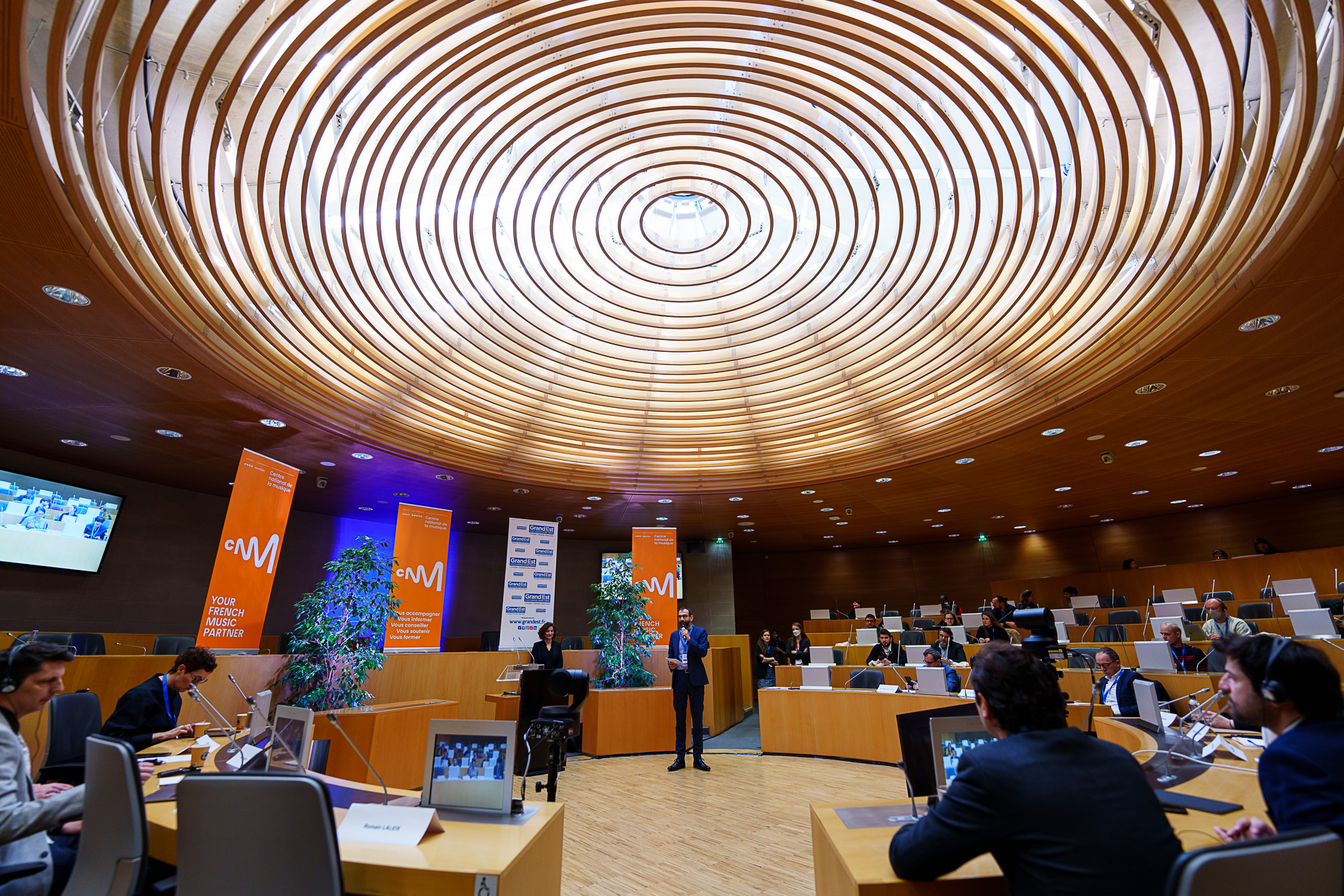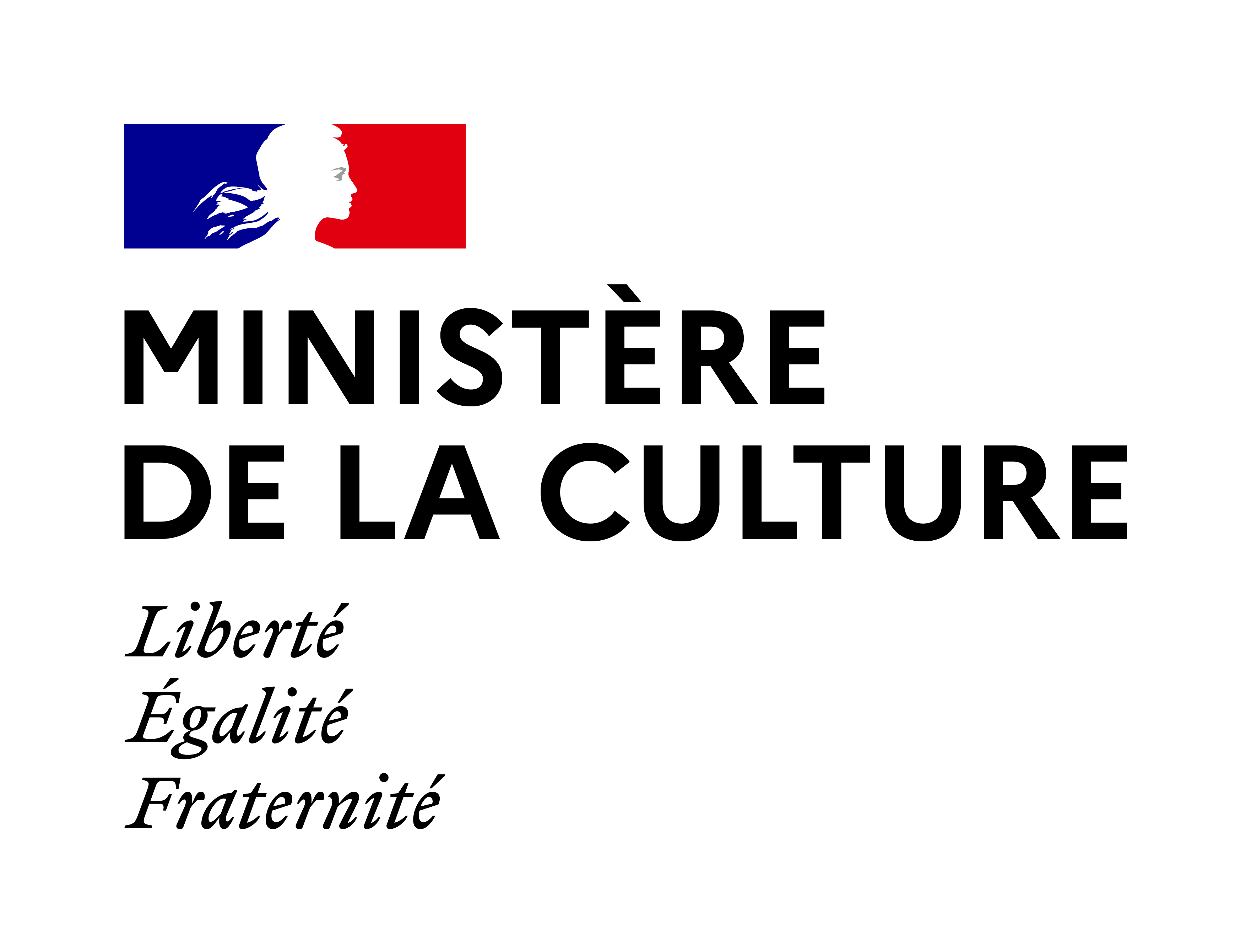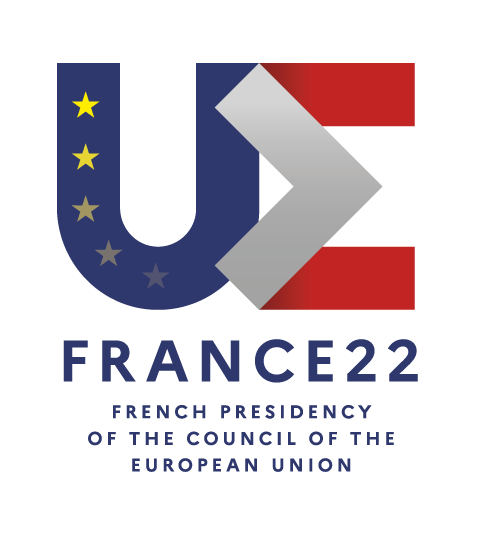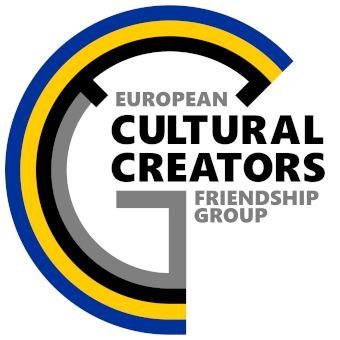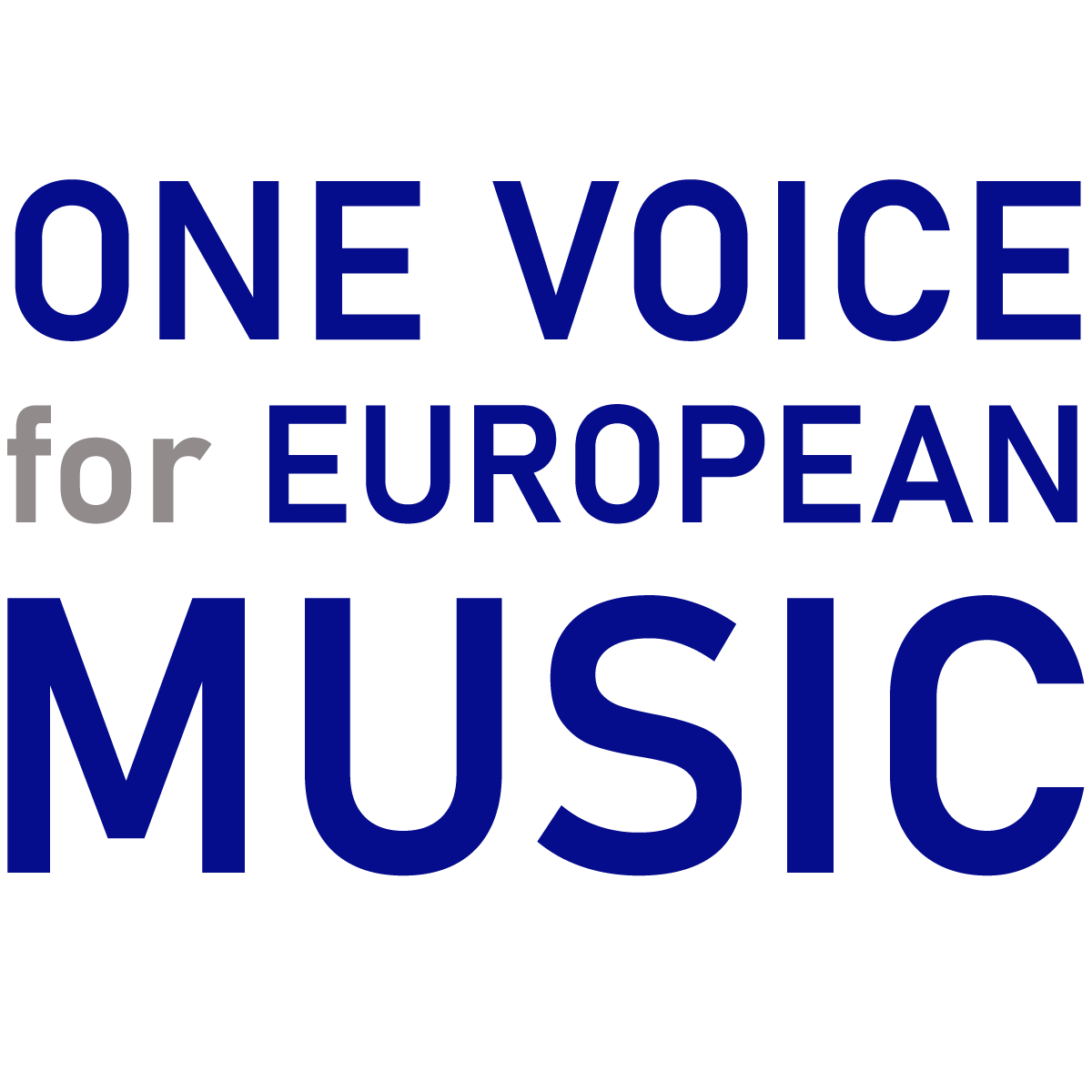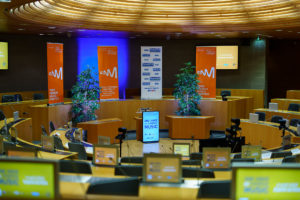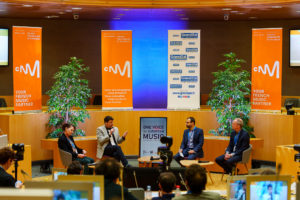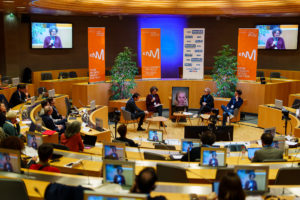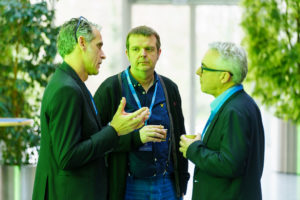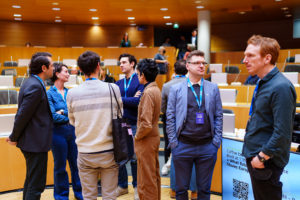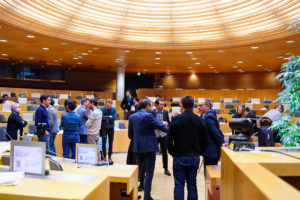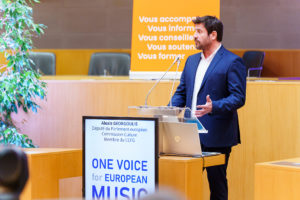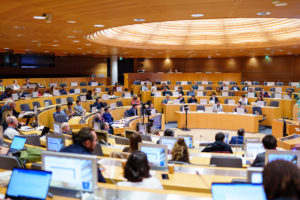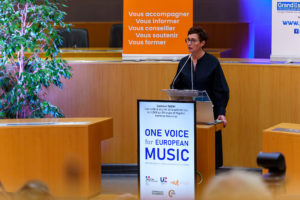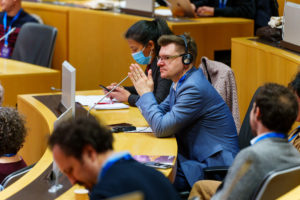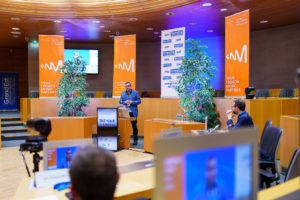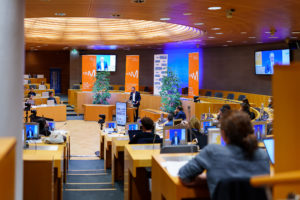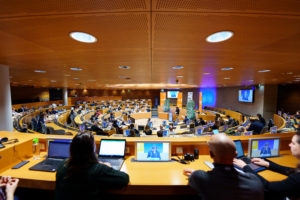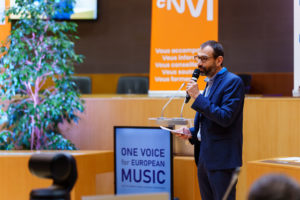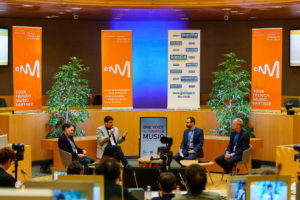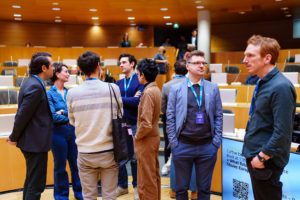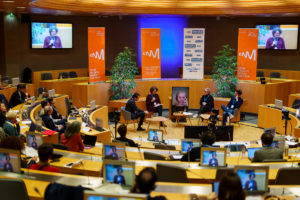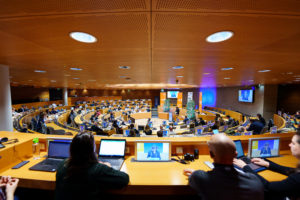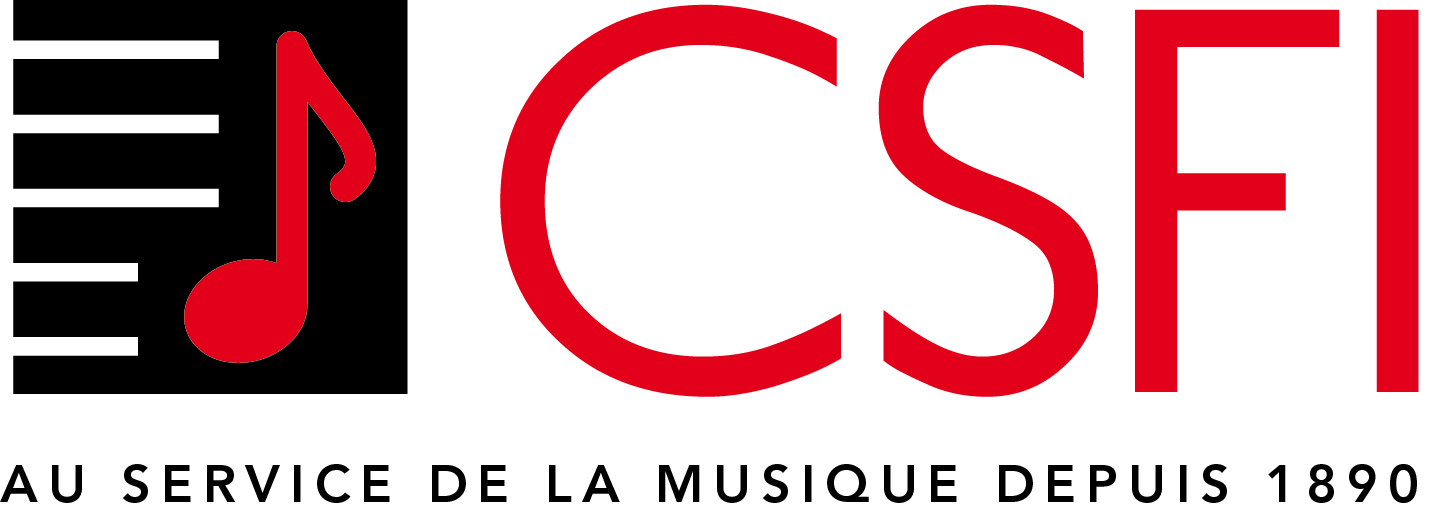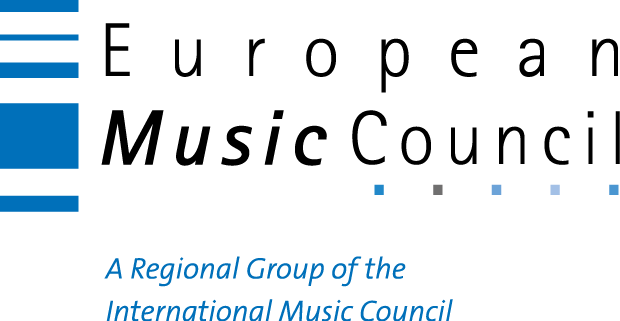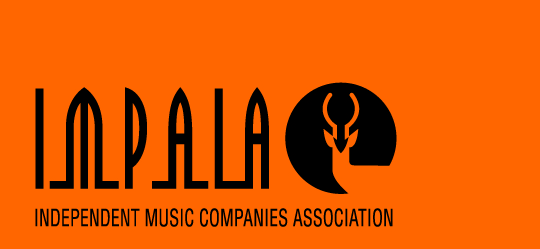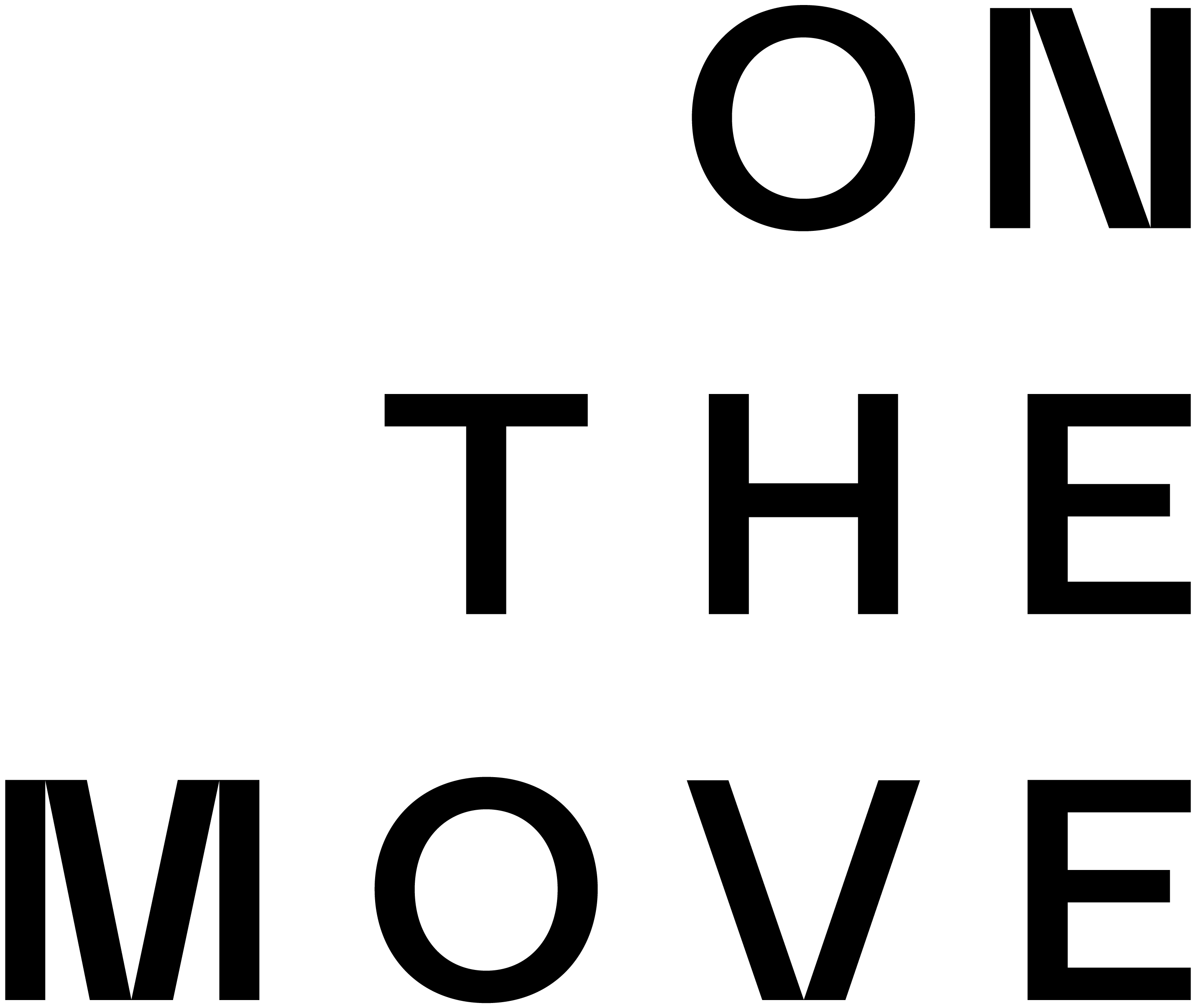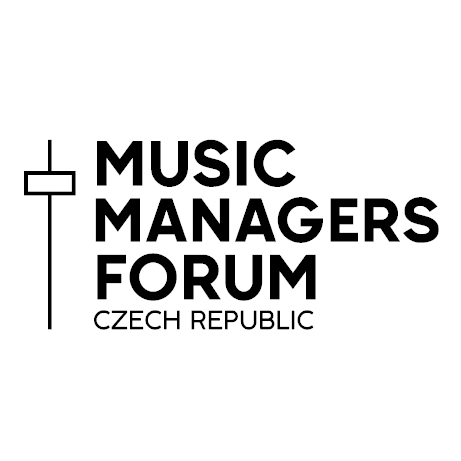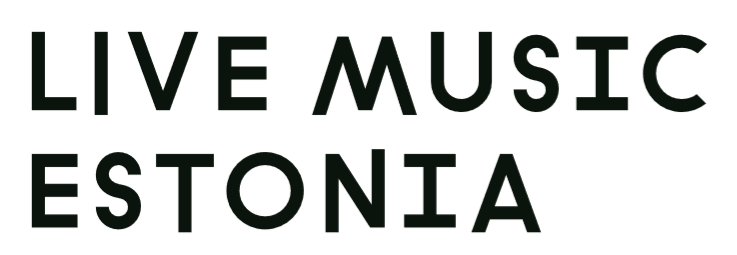One Voice under the French presidency
General recommendations
- Better recognize the economic, cultural and social importance of music in recovery plans in the context of NextGenerationEU, in current and future transversal EU programmes (structural, green, innovation, research funds) and through InvestEU ;
- Building on the results of the “Music Moves Europe” preparatory action (2018-2021) and on the recommendations developed below, dedicate an appropriate level of support for the music sector according to its cultural, economic and societal importance:
- In the current Creative Europe budget (2021-2027), through a progressive upscaling of the sectoral action on music in annual work programmes
- In the future Creative Europe programme (2028-2034), on a scale and model comparable to what exists for the audiovisual sector.


Mobility of creators and circulation of works
Participants encourage the European Institutions to:
- Develop scaled-up and ambitious cascading grant schemes to increase European programming and cooperation (on the model of Liveurope and European Talent Exchange Programme) in the current and future Creative Europe programmes;
- Build on the “European Music Export Strategy study” (2020), to deploy an ambitious set of support measures for the international circulation and visibility of European music in the current and future Creative Europe programmes;
- Increase coordination between Member-States on administrative and social issues (e.g.; double-taxation, visas, work permits) to encourage a harmonious post-COVID recovery of international mobility.
Increased knowledge of the music sector
- Set up, hand and hand with the sector and with a long-term view, a set of appropriate and efficient indicators, methodologies and collection tools to provide a continuous observation of the key challenges and opportunities of the sector in all its dimensions (economic, cultural, social, environmental, societal and technological). First and foremost, such an endeavour could start with the establishment of concrete criteria to better define European works of music (e.g., on the basis of ISRC, ISWC, nationality, country of establishment of the production, language, etc.) ;
- Deploy an independent and ambitious vehicle of data collection and analysis at EU level, building on the “feasibility study for the establishment of a European Music Observatory” (2020) and the current “Music Ecosystem” Horizon Programme call for proposals. Such a tool could be funded by the Creative Europe programme, and supported by EU Member-States, on a model comparable to what exists in the audiovisual sector.
Innovation and sustainable development
- Promote new models and incentive mechanisms to help the music sector contribute to tackling the climate and environmental crises through policy and support measures (e.g., through open source tools for music professionals to measure their ecological impact), while building on existing experimentations (e.g., MusicAIRE);
- Develop tools and support schemes to reinforce the sector’s capacity to invest in innovative and sustainable creation, distribution and monetisation models, in line with the EU’s ambition as tomorrow’s digital champion.
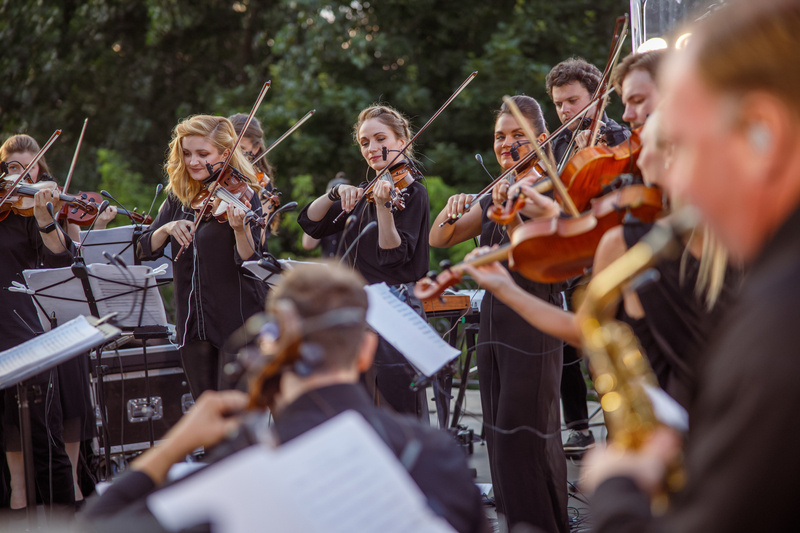

Necessity for a continued dialogue on key regulatory topics
Alongside these recommendations for a stronger and better adapted support framework, participating organisations underline the necessity for a continued dialogue on key regulatory topics:
- Ensure swift implementation of the copyright directive, and that the future DSA regulation doesn’t clash with the principles of a fairer and more transparent online environment;
- Continue and reinforce the dialogue with the sector on tackling the consequences of the RAAP decision, fixing the issue of buy-out, spurring a European status of the artist, and clarifying the articulation between competition law and collective bargaining;
- Continue and reinforce the dialogue with the sector on VAT issues, study the impact and opportunities of an extension of reduced VAT rates on the music ecosystem.
One Voice for European Music
France | 06.04.22
The event in Strasbourg
It was an opportunity to present the recommendations of the One Voice for European Music process, to give the floor to the presidency of the CNM, to MEPs (members of the Cultural Creators Friendship Group), to the European Commission (with the participation of DG EAC) and to professional organisations through speeches, round tables and informal exchanges.
In total, more than 30 organisations signed the final recommendations and mobilised on 6 April to show their support for the general interest of the European music industry.
The event was also strongly followed online, with more than 1300 people connected.
They talked about 6 April : On the Move ; Europavox ; Maison de la musique contemporaine ; Relais Culture Europe ; Profedim ; le Laba ; ECSA ; Région Grand Est ; Jeun’Est ; Impala ; Les Forces Musicales ; UPFI ; Live DMA ; Europe Jazz Network ; ECSA , Liveurope ; Hamburg Music Business ; ECHO …
